Amidst aspirations and ties;
In empty spaces and occasional homecomings,
In negotiations of privacy and longed cherish fellowships;
A modest dwelling in our native land!
“Apdu gaam nu ghar”
Our home in our native village
Vemar, a village situated 25km from Baroda in Gujarat, experiences a significant exodus of its residents, with many families opting for out-migrations and contributing to the growing NRI diaspora. In the wake of this trend, ancestral homes are left behind as families relocate to various countries. The village tells a tale of two narratives: one where individuals preserve their heritage by transforming their inherited houses into cherished retreats for periodic returns, referred to as “Apdu Gaam nu ghar,” and the other where homes are abandoned, succumbing to the passage of time, while some adapt chaotically to the evolving lifestyle.
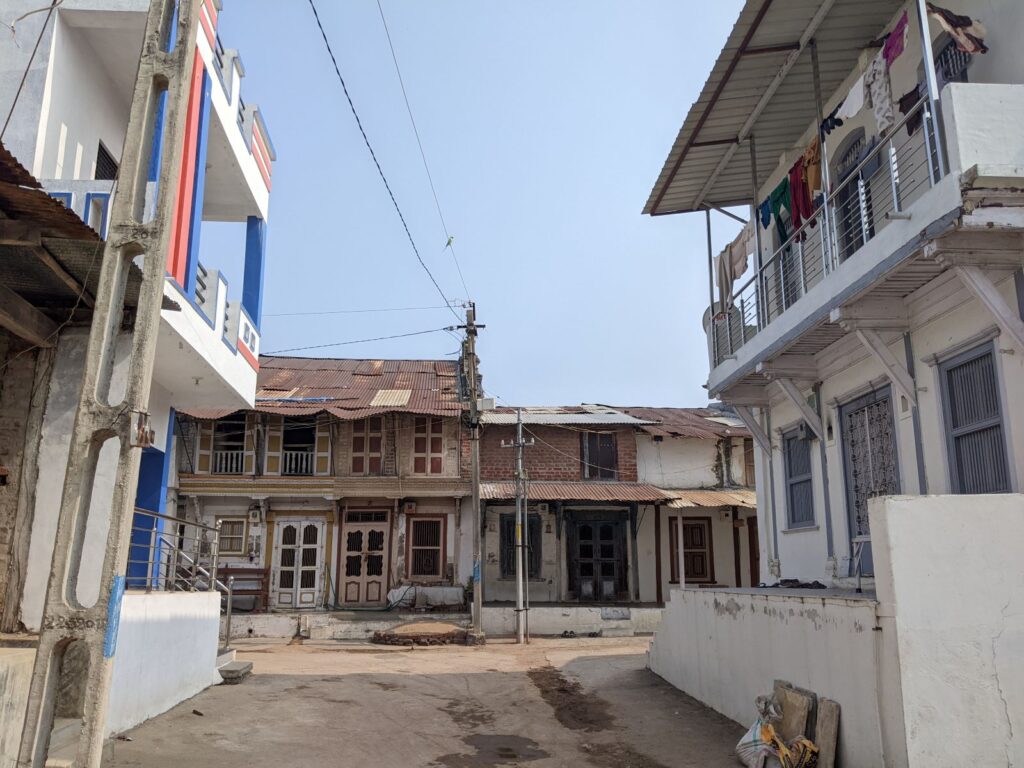
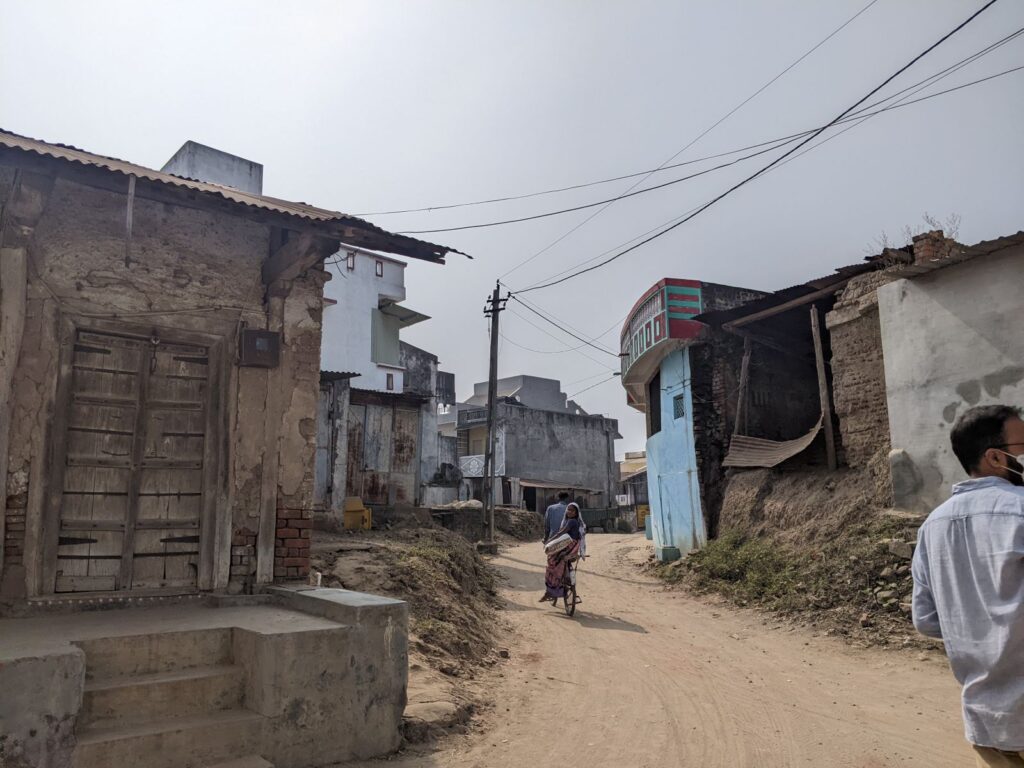
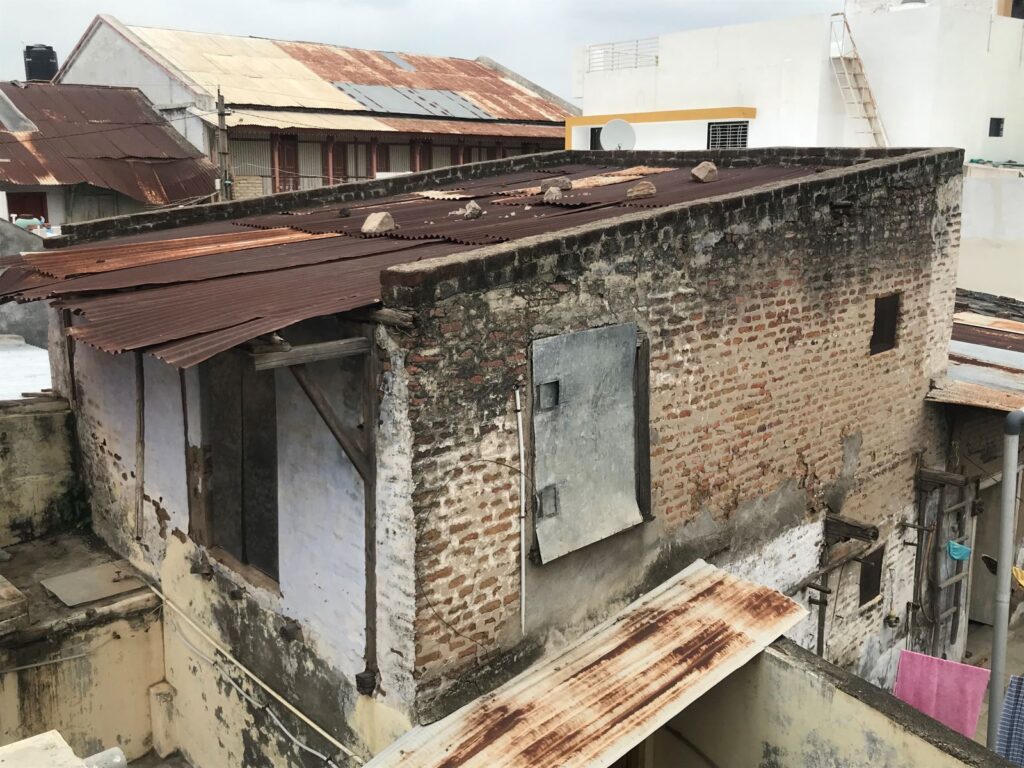
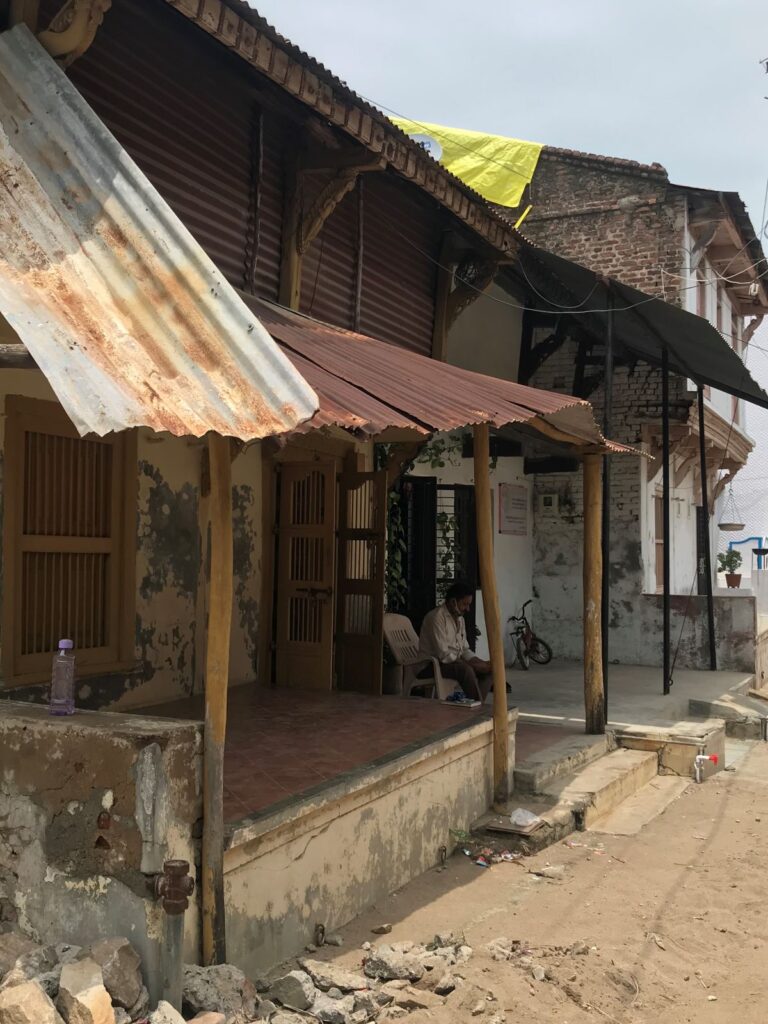
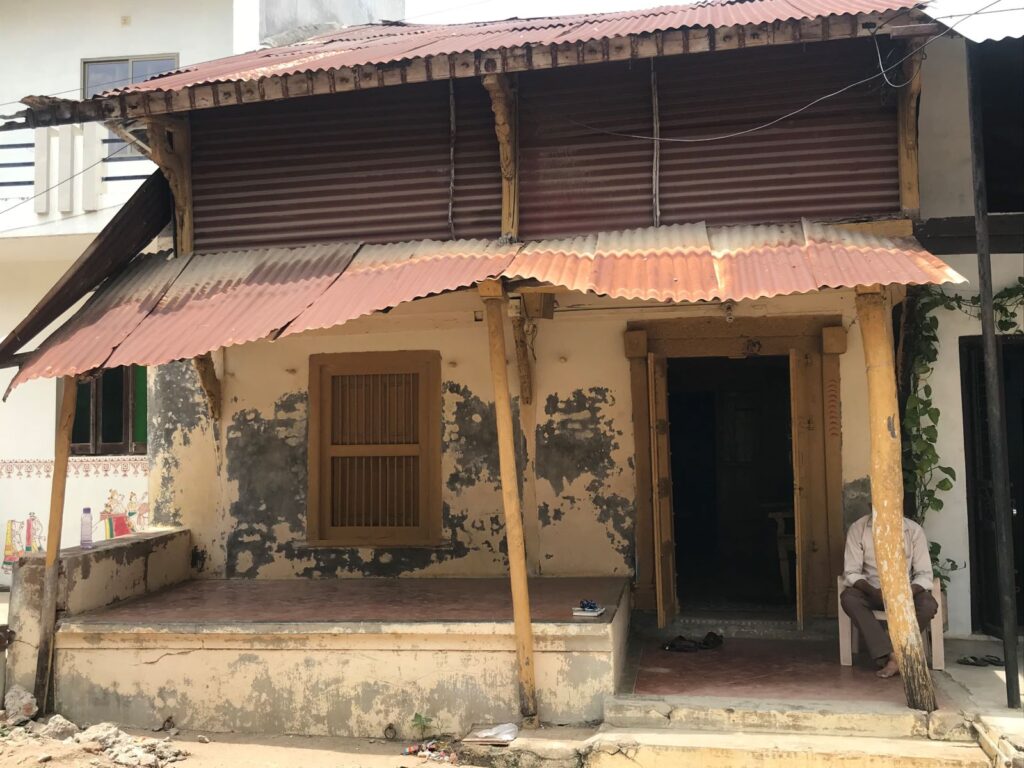
The older buildings, characterized by pitched roofs, solid openings, and a connection with narrow streets, showcase traditional craftsmanship with bricks, mud lime mortar, and plasters. In contrast, newer constructions exhibit haphazard development with raised plinths, flat concrete terraces, decorative tiles, and elaborate aluminium elements. These diverse architectural features shape the village’s built fabric, reflecting a clash between tradition and contemporary aspirations.
This particular house, owned by a family of former farmers now residing overseas, serves as a temporary abode during their visits. Standing for over 150 years, the wooden structure with shared walls features an “Otla” leading to aligned doors, culminating in an open court that ventilates utilities. The ‘Prahar’ entertains guests, while the ‘Orda’ serves as an intimate space for family and segregates women during larger gatherings.
The low-height roof and temporary first-floor opening facilitate agricultural harvest unloading/loading. The house, with changing levels and a pitched roof, represents a composite of materials and adaptations for improved living conditions and occupational needs.
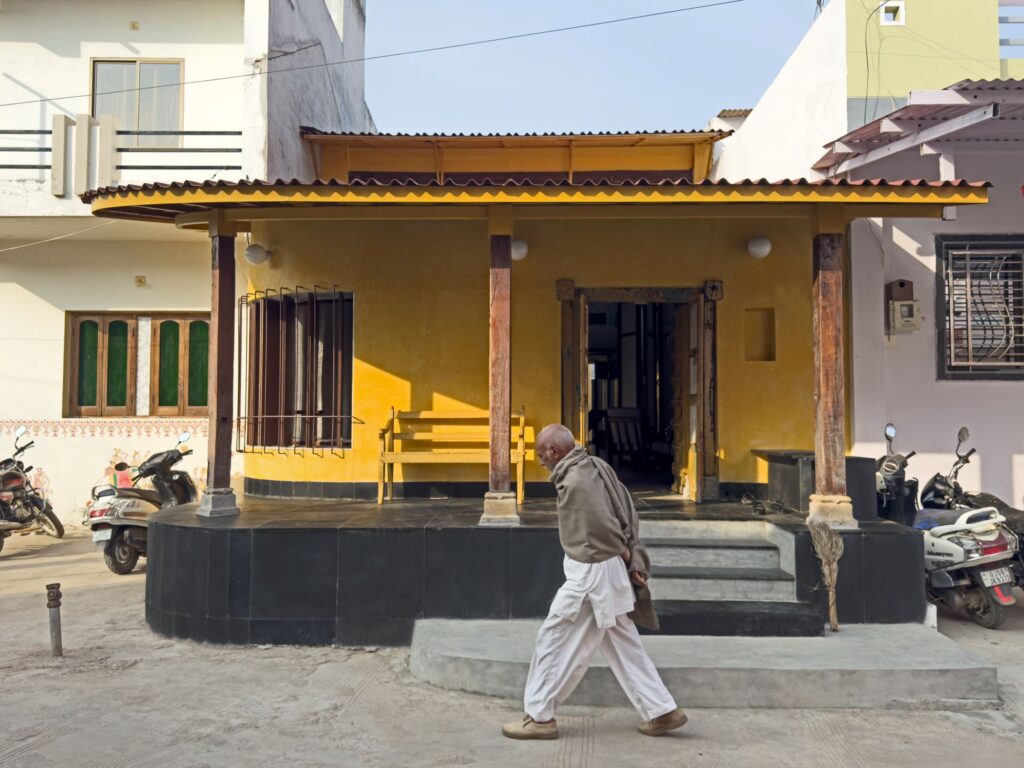
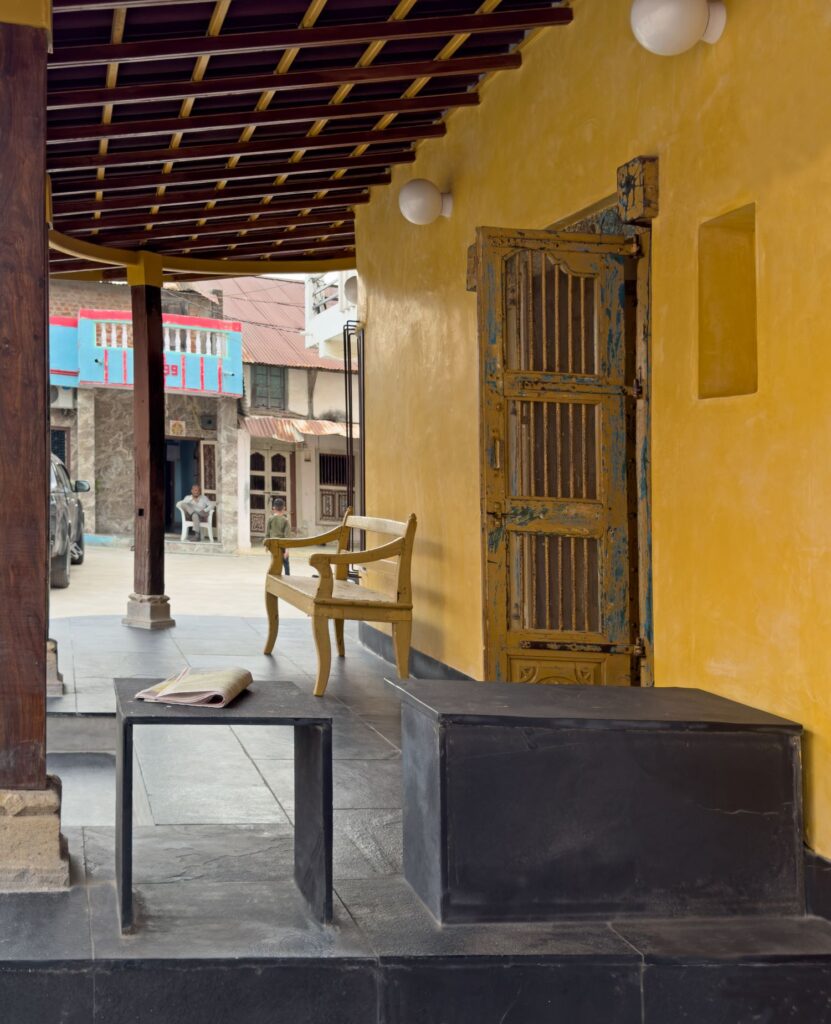
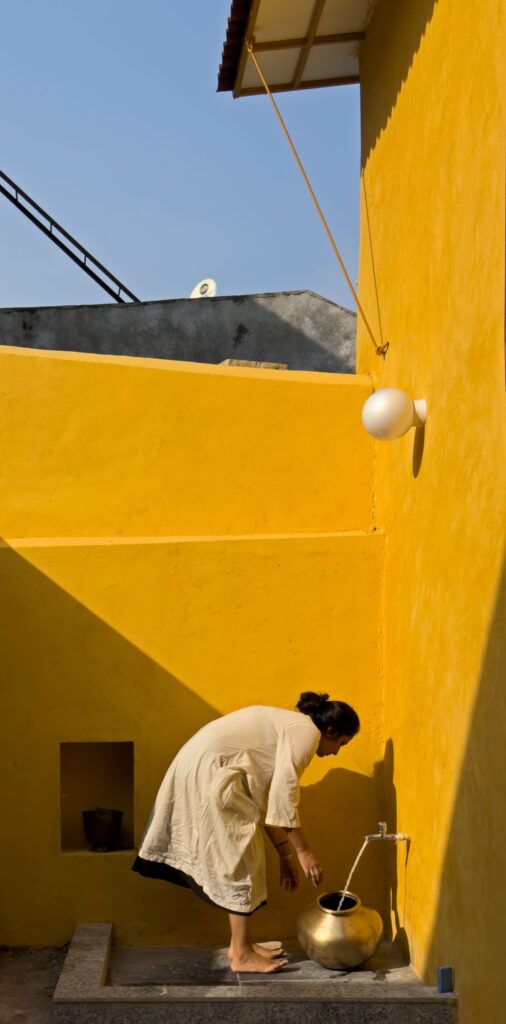
The old house’s timber is repurposed in the new construction, with beams reused in the split gable roof structure. Shared walls are redesigned to accommodate the new roof, retaining the outer block’s originality with finishing updates. Wood from old openings is transformed into new doors and windows, preserving the main door and jaali in their original state. The transformed ‘Gaam nu Ghar’ stands amidst a dynamic surrounding, struggling with identity and associations.
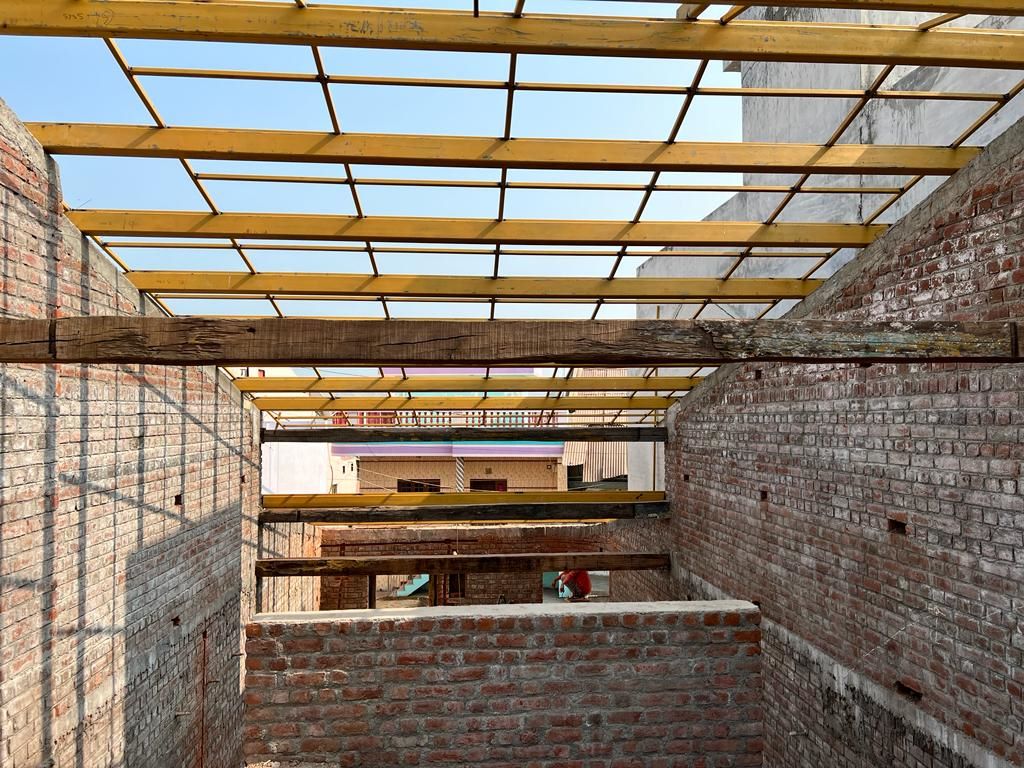
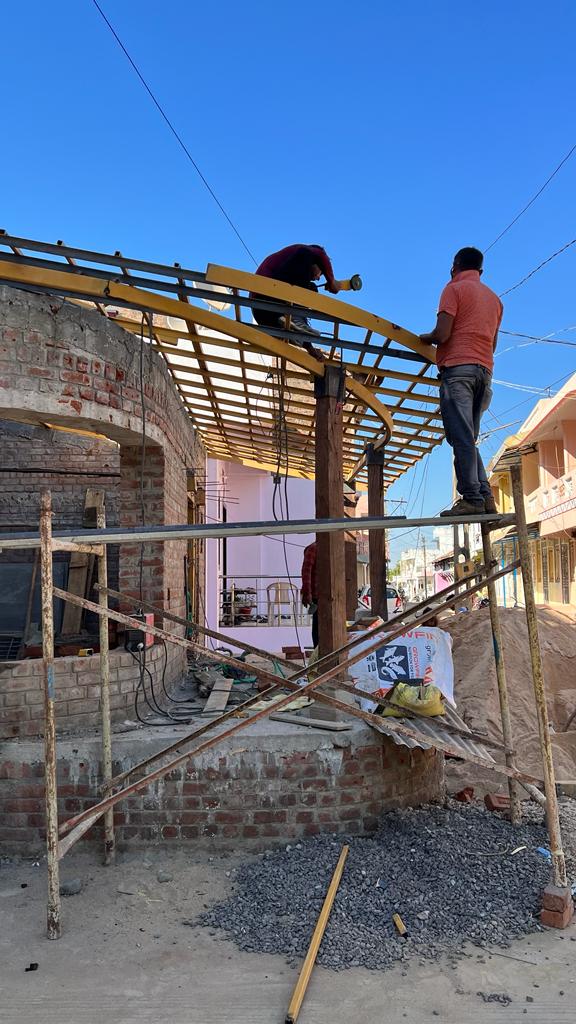
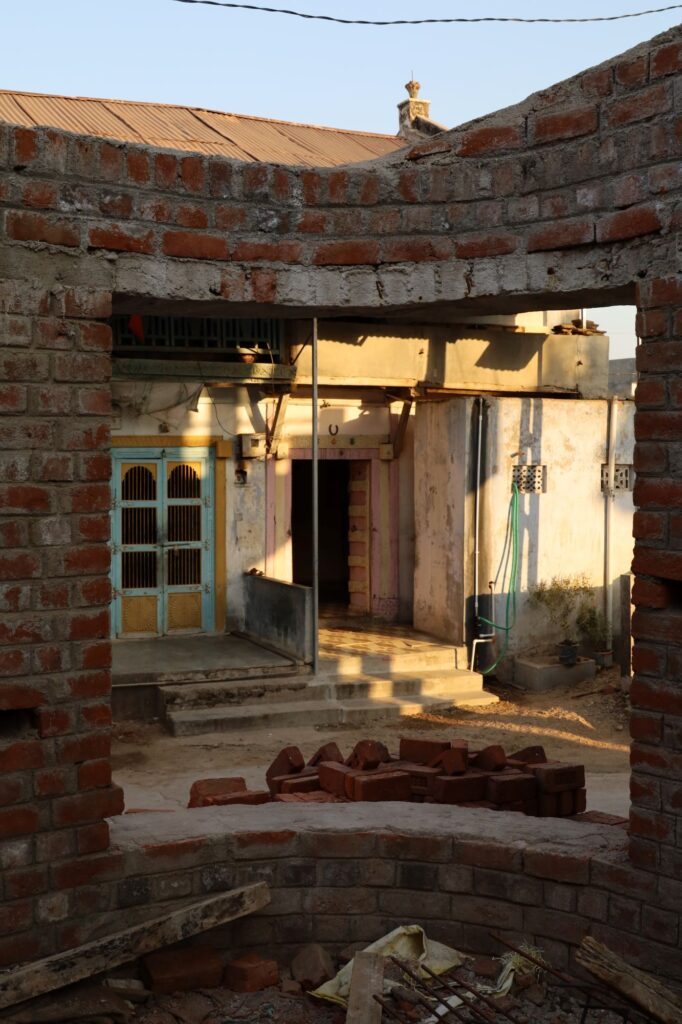
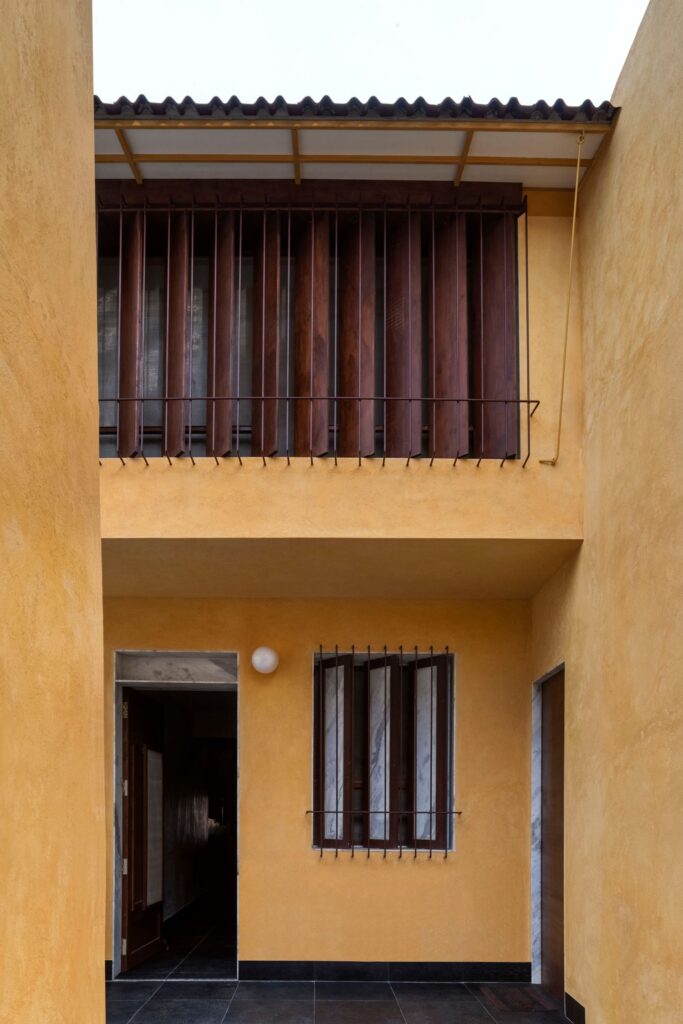
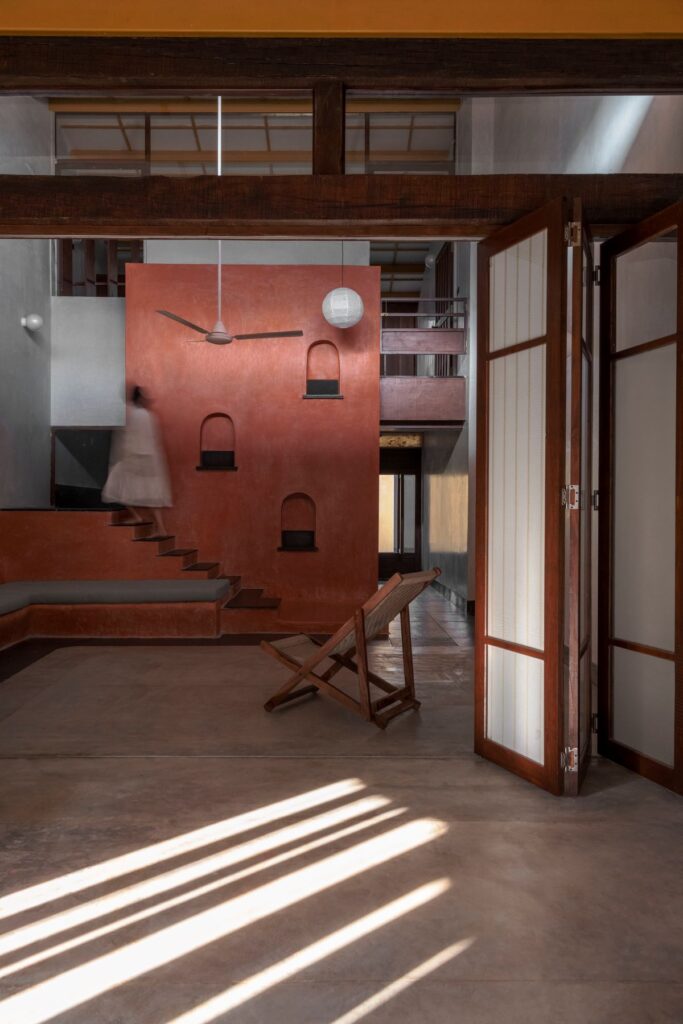
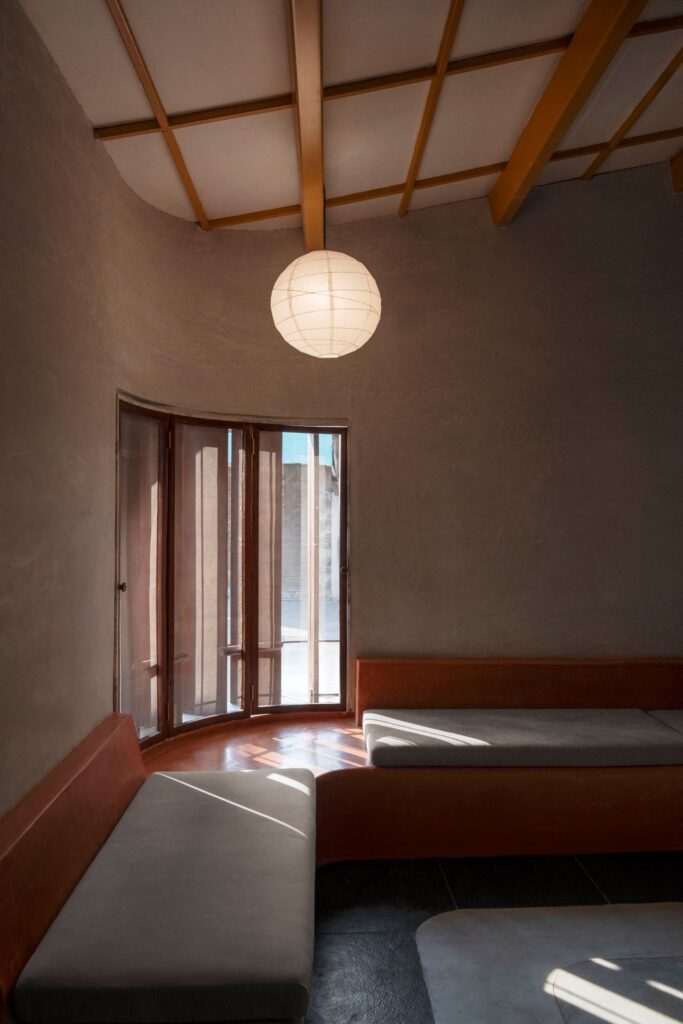
Originally conceived as a restoration project, the structurally deteriorated old house was deconstructed and rebuilt due to safety concerns. The scale of the new house is optimized for occasional visits, featuring a split gable roof that encompasses all spaces. The project carefully balances the preservation of heritage with functional and safety considerations, embodying a harmonious blend of tradition and modernity in the evolving narrative of Vemar village.
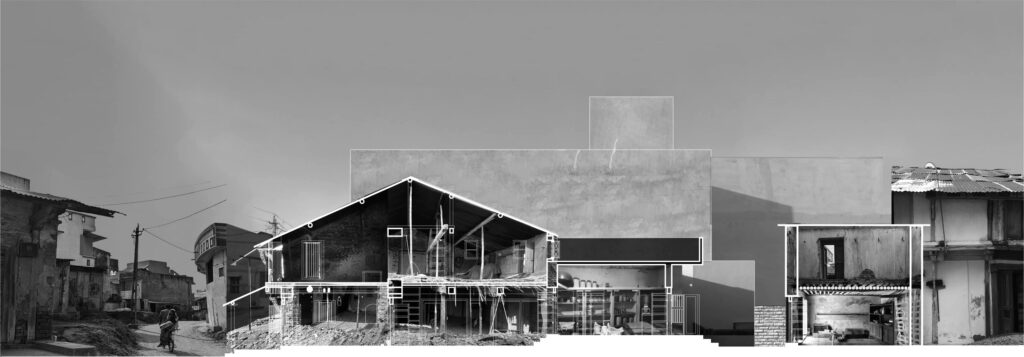
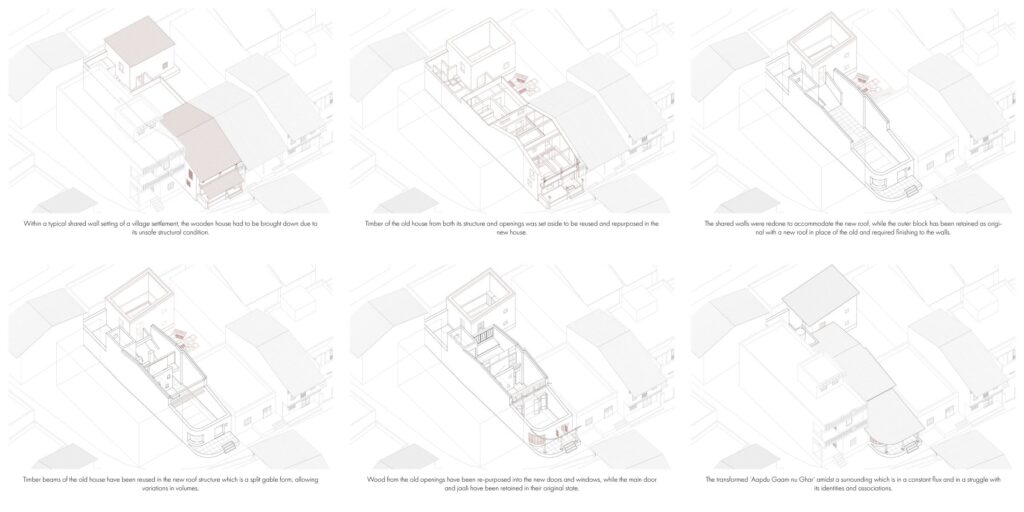
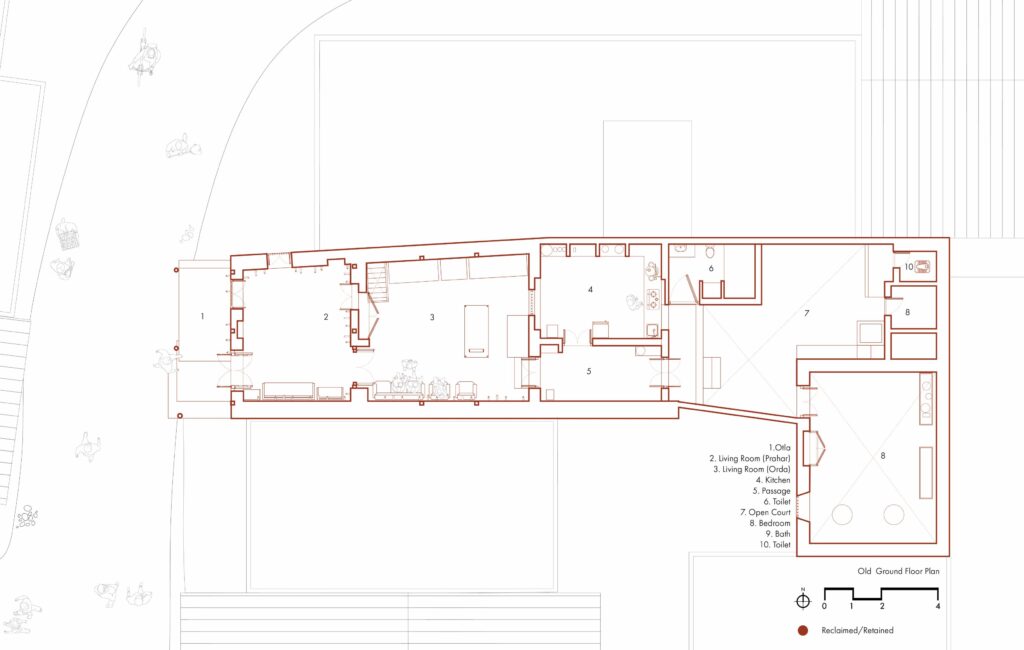
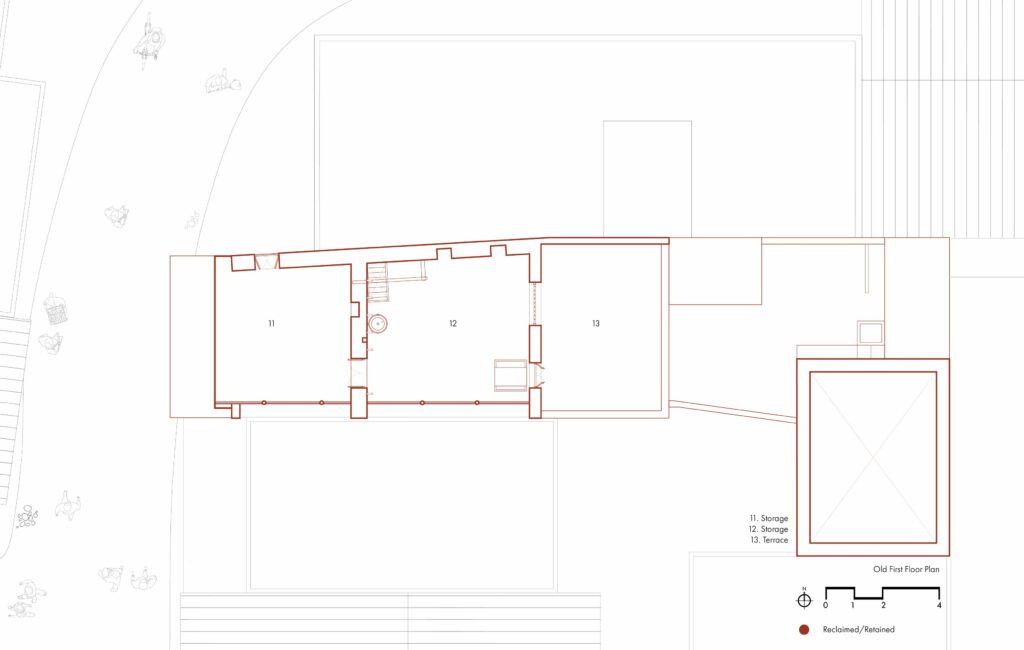
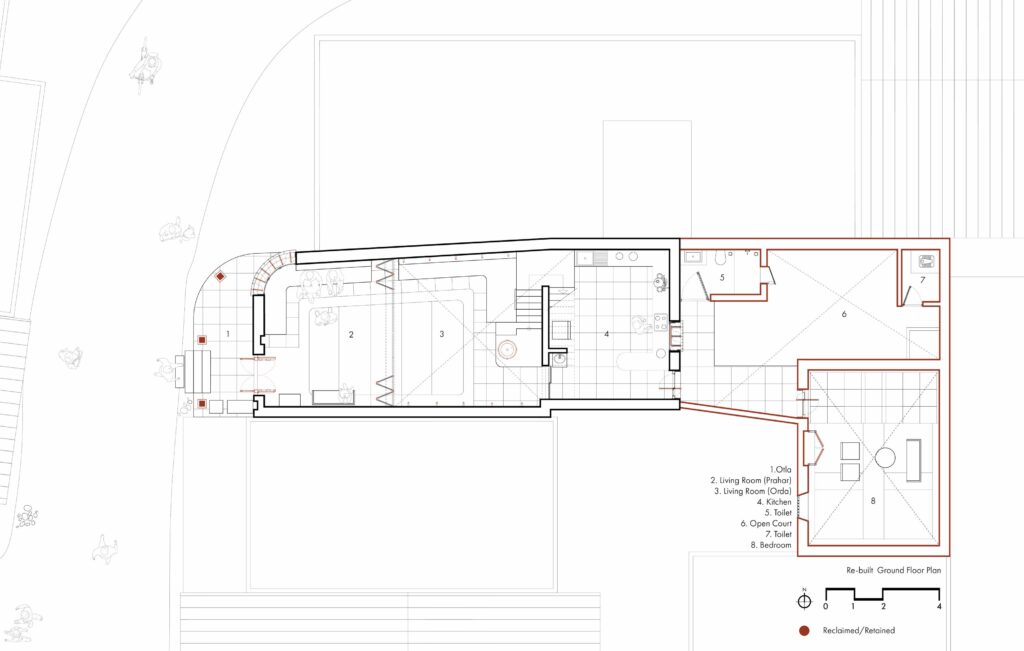
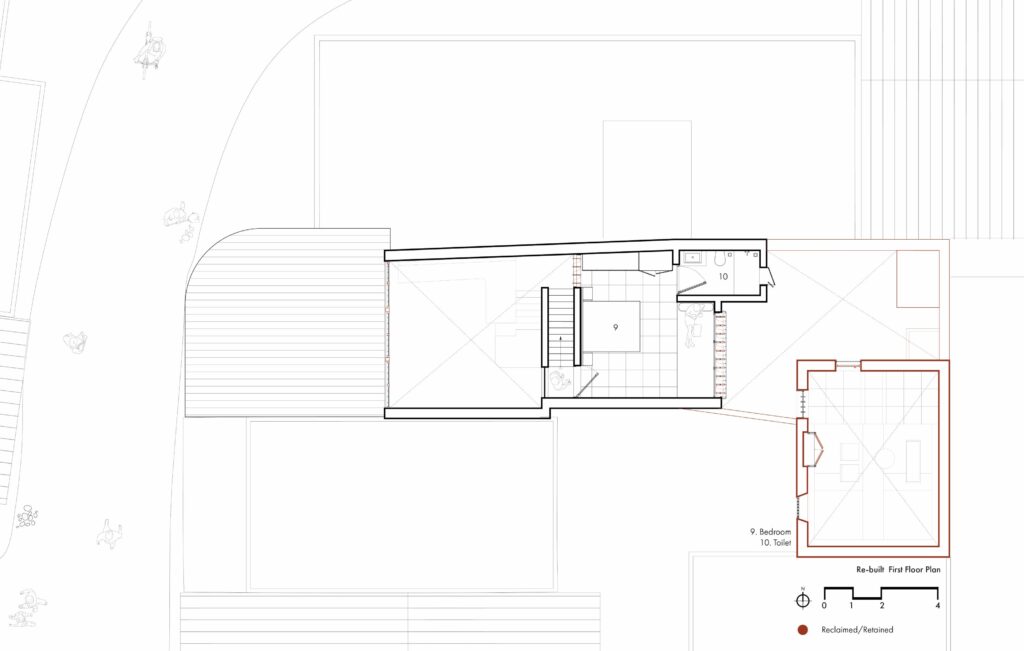
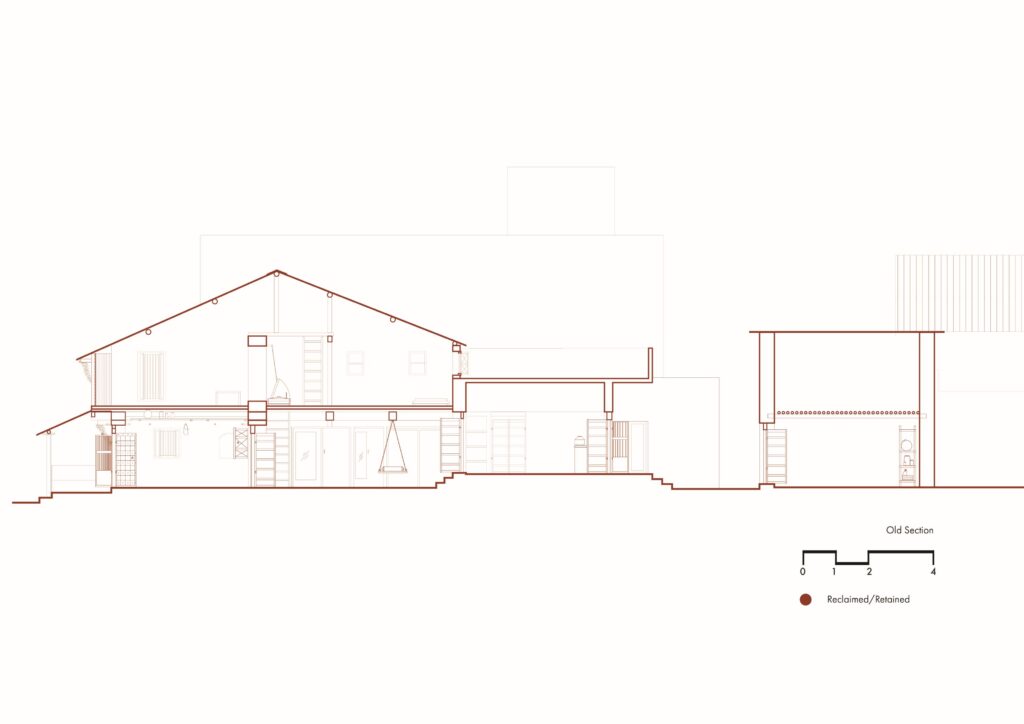
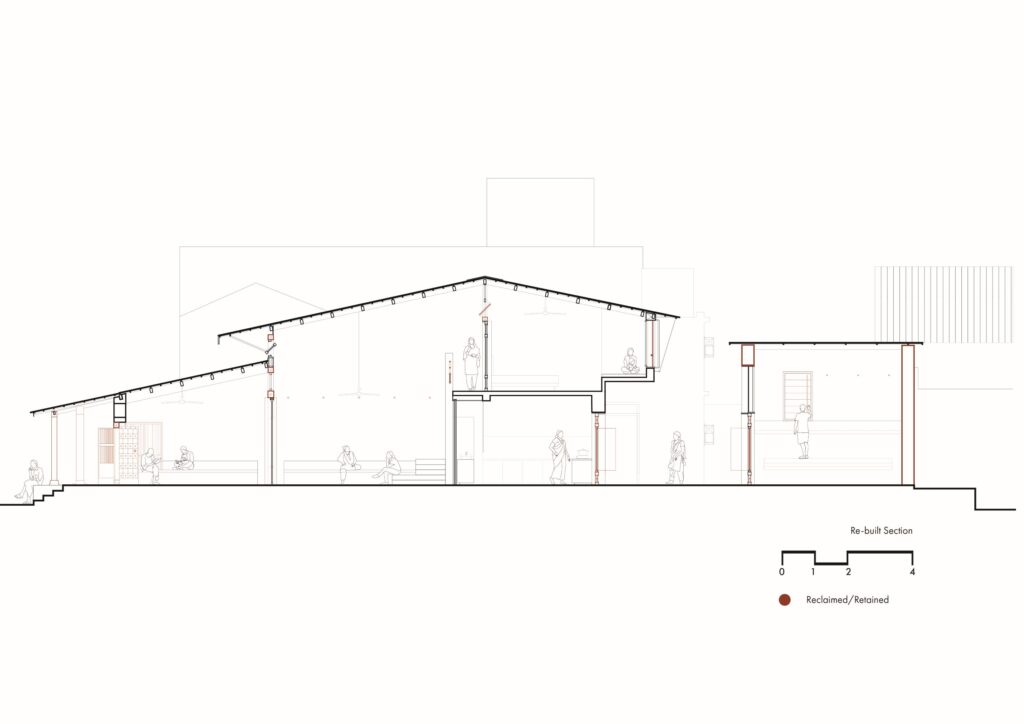
Project Details
Name: Apdu Gaam nu Ghar
Location: Vemar, Vadodara, Gujarat
Status: Completed (2023)
Area: 120 sq. mts.
Design Team: Naomy Parikh, Niyati Shah, Chandan, Deep, Purva, Sangeetha, Saumil
Structural Engineer: Ami Engineers
IPS Flooring: Arun, Kalyanbhai, Dhirajbhai
Lime Finish: Motilal Gameti
Paint & Polish: Arifbhai
Stone Work: Nandubhai, and Yogeshbhai
Roofing: Onduline
Fabrication: Chhotelal
Carpenter: Omprakashbhai
Photo Credits: Saurabh Suryan (Studio Suryan//Dang), and Stavan Bhagora
Video Credits: Stavan Bhagora



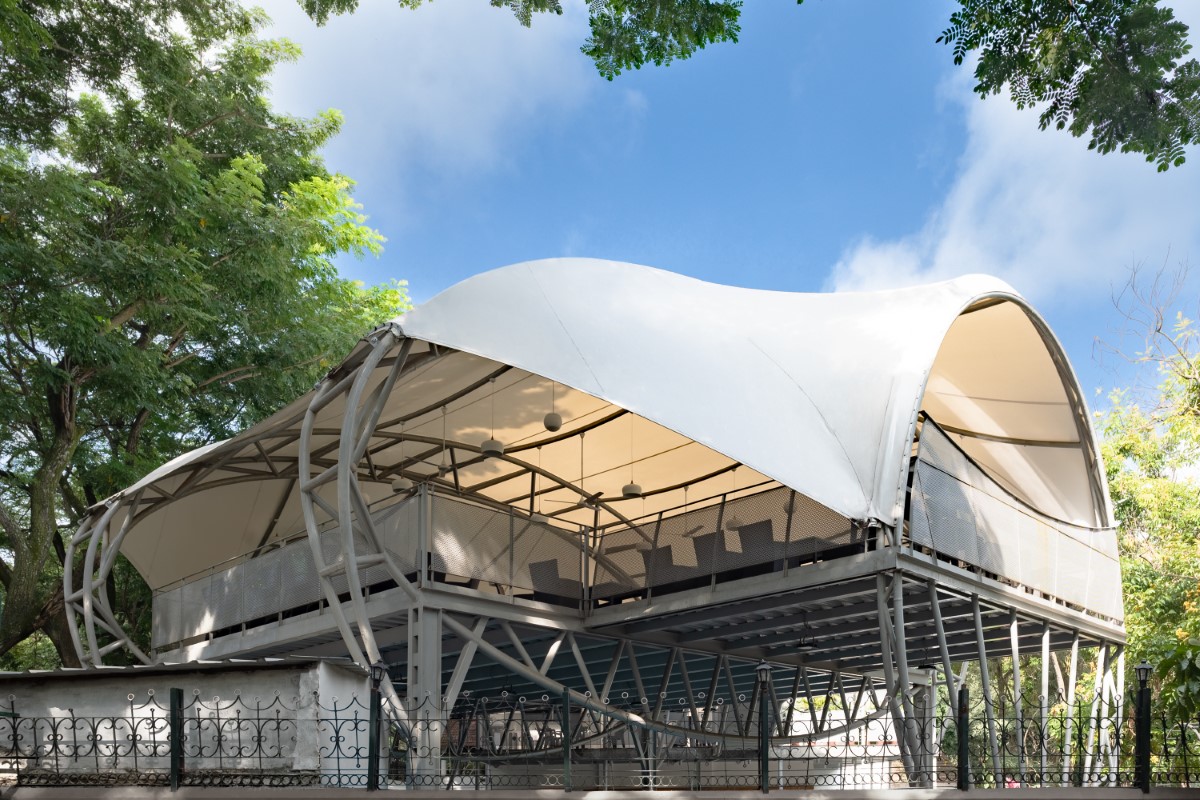
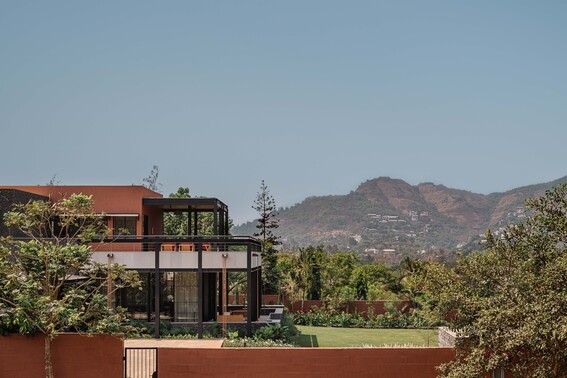



One Response
Congratulations to the entire team. With a little effort and imagination you have saved a property from sure negligent decay. Many villages ,I can vouch for Udvada for one, have this problem of no occupant and the house going to seed.
Hope this -your beautifully inspirational reconstruction work inspires a renaissance of sorts and many more such properties get a new lease of life.